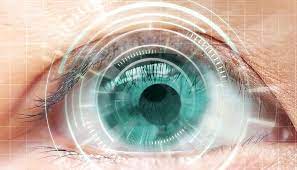If you’re considering a Lasik procedure, you’ll want to know as much as possible about the available options and what each entails. In this article, we’ll provide an overview of Lasik surgery, including everything you need to know about the technology and procedures involved. We’ll also provide tips on how to prepare for your surgery and what to expect after surgery.
Contents
What is Lasik Surgery?

The Lasik procedure has two parts: the consultation and the operation. During the consultation, you will discuss your eyesight goals with the doctor. The doctor will also give you a detailed evaluation of your current vision status and may recommend other treatments, such as eyeglasses or contact lenses, if necessary.
The operation itself typically involves the placement of a flap in your eye and then the use of a laser to sculpt it to correct the vision problem. After the laser treatment is complete, the flap is replaced and closed with stitches. Most people are able to resume their regular activities within 24 hours of their Lasik surgery appointment.
How Does Lasik Procedure Work?
Lasik Procedure is a popular and effective treatment for vision problems. Lasik uses a special type of surgery to correct your vision. The doctor first makes a small cut in your eye. They then use a laser to reshape the cornea, which is the front layer of your eye. This restores your vision and eliminates the need for glasses or contact lenses. Lasik may also be used to treat other conditions such as myopia, astigmatism, and presbyopia.
Types Of Laser Procedure Surgery
There are several types of Lasik surgeries:
Monocrystalline LASIK
This is the most common type of Lasik surgery. It uses lasers that break down the natural structure of the lens into tiny pieces. This process shrinks the size of the lens and eliminates any need for glasses or contact lenses after surgery. There are two main types of monocrystalline Lasik: refractive (laser) assisted varifocal and nonrefractive (no laser) assisted varifocal Lasik procedures.
Polycrystalline Lasik
This type uses lasers to create individual microscopic crystals within the lens material. These crystals help form an image on the retina, which is then corrected by Lasik surgery. There are three main types of polycrystalline Lasik- cryolase (laser) assisted resurfacing, epithelial growth factor assisted laser in situ keratomileuses (EGK), and photoepithelium-derived growth factor assisted
Who Can Benefit from Lasik Procedure?
Lasik surgery is a safe and effective procedure that can improve your vision. It is most commonly used to correct nearsightedness or farsightedness, but it can also be used to correct other types of vision problems.
Lasik surgery is not for everyone, but it can be a good option for people who:
- Have mild to moderate myopia (nearsightedness)
- Have a normal or corrected-to-normal vision in one or both eyes without glasses or contact lenses
- Are over 18 years old
- Are suitable candidates based on their medical history and current eye health
If you are considering Lasik surgery, here are some things to know:
1. There are two types of Lasik surgery: “traditional” LASIK and “advanced” LASIK. Traditional Lasik uses a blade to reduce the thickness of your cornea outside the eye. Advanced Lasik uses a laser to reshape the cornea inside the eye. Both procedures provide better vision than standard eyeglasses, but traditional Lasik is less invasive and has fewer complications.
2. The length of time you need to wear contacts after Lasik varies depending on your individual case, but most people require about two weeks before they can go back to wearing regular eyeglasses. If you have advanced Lasik, you may need more time before going back to wearing glasses or contacts because the laser reshaping of your cornea may take up to
Possible Side Effects of Lasik Surgery
Lasik surgery is a common procedure that can improve vision. However, there are potential side effects that patients should be aware of. These side effects may include:
- Nystagmus (a movement disorder in which an individual’s eyes involuntarily move in a circular or jerky pattern)
- Light sensitivity
- Blurred vision
- Eye pain
- Sensitivity to light and glare
- Double vision
Costs of the Procedure
Lasik surgery is a popular cosmetic procedure that can improve vision by correcting certain types of vision problems. The costs of the procedure vary depending on the type of Lasik procedure you choose, but most Lasik surgeries generally cost between 30,000- 1,00,000 and. Some Lasik patients may also experience minor side effects during or after the surgery, but these are usually temporary and can be treated with medication.
Lasik is a common, safe surgery that can improve your vision. The Lasik procedure uses a laser to correct your vision. It is usually done on an outpatient basis. Before the surgery, you will need to make some decisions about your eye health and vision.
Some factors to consider before Lasik include your prescription strength and whether you have astigmatism or other refractive errors. If you are considering LASIK for the first time, it is important to see an ophthalmologist (eye doctor) who will discuss all of your options with you and set up a prescriptive treatment plan.
After making the decision to have Lasik surgery, you will need to schedule a consultation with an ophthalmologist who will help you determine if Lasik is right for you. During this consultation, the ophthalmologist will review your medical history and perform a physical exam of your eyes. This evaluation helps determine if Lasik is the best treatment option for your eyesight problems.
If you are ready to have Lasik surgery, the next step is to find an experienced surgeon who can perform the surgery on an outpatient basis. Options for choosing a surgeon vary from patient to patient, but some things to consider include reviews from other patients, whether the surgeon has performed many Lasik procedures, and whether they offer any discounts for military members or veterans. You can also ask other patients about their experiences before scheduling a consultation with a particular surgeon or looking online for reviews
Is Lasik Procedure Painful?
The LASIK procedure is not painful. Right before your procedure, your surgeon will place numbing drops into both of your eyes. Even though you may feel a little pressure during the procedure, you should not feel any discomfort.
After the surgery, you may experience some mild discomfort for a few days as your eyes heal. Some patients even report feeling a light headache the next day. However, most people find that their vision is improved after LASIK and that the procedure was not painful at all.
Are You Awake For Lasik Procedure?
Potential LASIK patients often wonder whether they will be awake during the procedure. Yes, patients are awake during LASIK. If you accidentally blink or move your eyes, it won’t affect your vision.
Most patients are able to listen to the music playing in the room and watch a movie after LASIK. Patients should avoid reading or working on any paperwork right after the surgery since they will likely feel a little blurry.
Conclusion
It may be concluded that Lasik procedure is an excellent choice for many people, and those who have it generally report satisfaction with the results. While there are some potential risks associated with the surgery, they are relatively minor in comparison to the benefits. Those who are considering Lasik should be aware of these risks and make sure to ask their doctor any questions they may have.
Overall, Lasik surgery appears to be an excellent choice for many people. Those who have it generally report satisfaction with the results. While there are some potential risks associated with the surgery, they are relatively minor in comparison to the benefits. Those who are considering Lasik should be aware of these risks and make sure to ask their doctor any questions they may have.
Lasik surgery is a safe 10-minute procedure to help you get rid of glasses. MantraCare offers the most advanced Lasik options. If you have any questions on lasik surgery feel free to reach out to us at +91-9711116605. We provide effective Lasik surgery in Delhi.
